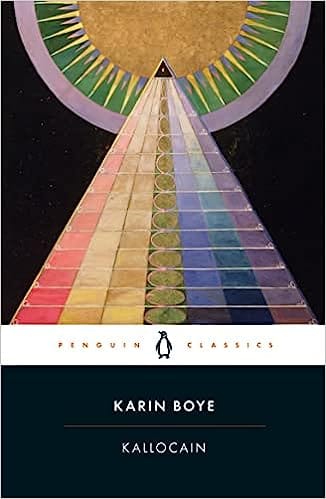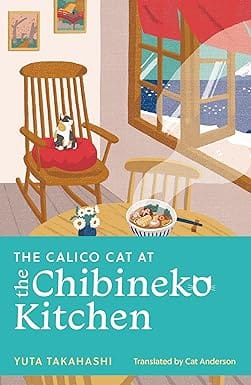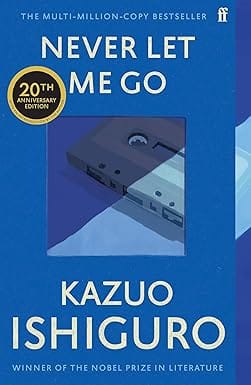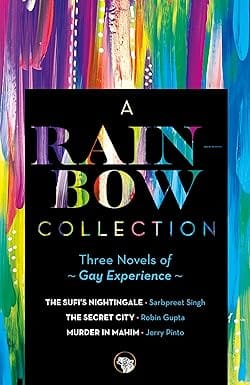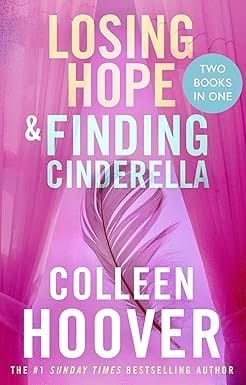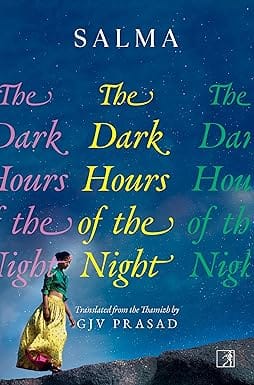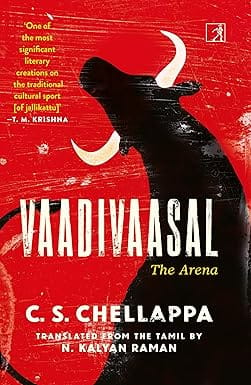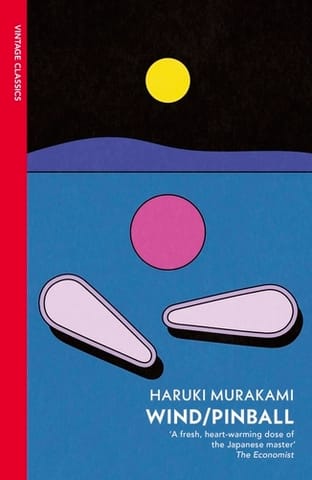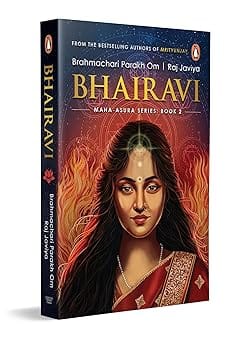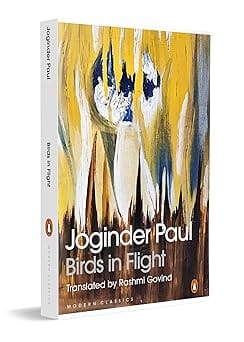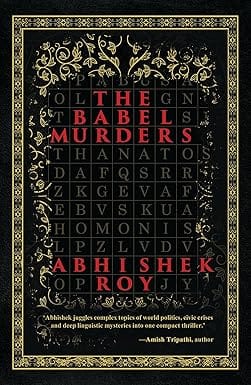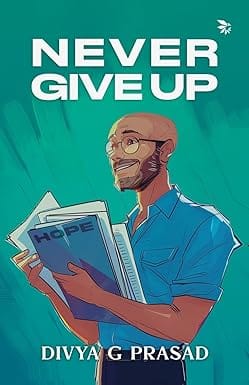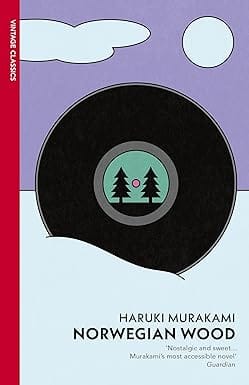WELCOME TO MIDLAND BOOK SHOP!
SHOP FOR
-
Non-ficton
- Non-ficton
-
Contemporary Fiction
- Contemporary Fiction
-
Children
- Children
-
Comics & Graphic Novels
- Comics & Graphic Novels
-
Non-Fiction
- Non-Fiction
-
Fiction
- Fiction
Shop No.20, Aurobindo Palace Market, Hauz Khas, Near Church +91 9818282497 | 011 26867121
110016
New Delhi
IN
Midland The Book Shop ™
Shop No.20, Aurobindo Palace Market, Hauz Khas, Near Church +91 9818282497 | 011 26867121
New Delhi,
IN
+919871604786
https://www.midlandbookshop.com/s/607fe93d7eafcac1f2c73ea4/677cda367903fd013d69b606/without-tag-line-480x480.png"
[email protected]
9780241608302
64b923661fac5c35c4227e3d
Kallocain
https://www.midlandbookshop.com/s/607fe93d7eafcac1f2c73ea4/64b923681fac5c35c4227e71/4110eun5nnl-_sx324_bo1-204-203-200_.jpg
9780241608302
The classic World War II–era dystopian novel, written at the midpoint between Brave New World and 1984, in its first new translation in more than fifty years
A Penguin Classic
Leo Kall is a zealous middle-ranking scientist in the totalitarian World State who has just made a thrilling discovery: a new drug, Kallocain, that will force anyone who takes it to tell the truth. At last, criminality will be dragged out into the open and private thought can finally be outlawed. But can the World State be trusted with Kallocain? For that matter, can Kall himself be trusted? Written as the terrible events of World War II were unfolding, Karin Boye’s classic dystopian novel speaks more clearly than ever of the dangers of acquiescence and the power of resistance.
A Penguin Classic
Leo Kall is a zealous middle-ranking scientist in the totalitarian World State who has just made a thrilling discovery: a new drug, Kallocain, that will force anyone who takes it to tell the truth. At last, criminality will be dragged out into the open and private thought can finally be outlawed. But can the World State be trusted with Kallocain? For that matter, can Kall himself be trusted? Written as the terrible events of World War II were unfolding, Karin Boye’s classic dystopian novel speaks more clearly than ever of the dangers of acquiescence and the power of resistance.
Review
“Thrilling . . . [It] mesmerizes. . . . Relationships are the true heart of Kallocain: how intimacies shape us, how the presence of difference can free us, and how what is freely given between people is always so much more powerful and real than what is taken by force.” —Ilana Masad, NPR
“A fascinating novel of the 1984 and Brave New World genre.” —Library Journal
“A fascinating novel of the 1984 and Brave New World genre.” —Library Journal
About the Author
Karin Boye (1900–1941) was a Swedish poet and anti-fascist who translated The Waste Land into Swedish. After undergoing psychoanalysis in Berlin, she left her husband and formed a lifelong relationship with another woman, Margot Hanel. Her most famous book, Kallocain, was partly inspired by eye-opening trips to Nazi Germany and Soviet Russia. Boye died by suicide the year after writing it.
David McDuff (translation and introduction) is the translator of the Penguin Classics editions of Dostoyevsky's Crime and Punishment, The Brothers Karamazov, and The Idiot, as well as Isaac Babel's short stories.
David McDuff (translation and introduction) is the translator of the Penguin Classics editions of Dostoyevsky's Crime and Punishment, The Brothers Karamazov, and The Idiot, as well as Isaac Babel's short stories.
in stock
INR
399
1
1
Email ID already exists!
Your Current password is incorrect
Password Updated Successfully
Thanks for your Feedback
Kallocain
ISBN:
9780241608302
₹399
₹499
(20% OFF)
SIZE GUIDE
Sold By:
Hauz Khas - Aurobindo Market
Details
- ISBN: 9780241608302
- Author: Karin Boye
- Publisher: Penguin Classics
- Pages: 192
- Format: Paperback
Book Description
The classic World War II–era dystopian novel, written at the midpoint between Brave New World and 1984, in its first new translation in more than fifty years
A Penguin Classic
Leo Kall is a zealous middle-ranking scientist in the totalitarian World State who has just made a thrilling discovery: a new drug, Kallocain, that will force anyone who takes it to tell the truth. At last, criminality will be dragged out into the open and private thought can finally be outlawed. But can the World State be trusted with Kallocain? For that matter, can Kall himself be trusted? Written as the terrible events of World War II were unfolding, Karin Boye’s classic dystopian novel speaks more clearly than ever of the dangers of acquiescence and the power of resistance.
A Penguin Classic
Leo Kall is a zealous middle-ranking scientist in the totalitarian World State who has just made a thrilling discovery: a new drug, Kallocain, that will force anyone who takes it to tell the truth. At last, criminality will be dragged out into the open and private thought can finally be outlawed. But can the World State be trusted with Kallocain? For that matter, can Kall himself be trusted? Written as the terrible events of World War II were unfolding, Karin Boye’s classic dystopian novel speaks more clearly than ever of the dangers of acquiescence and the power of resistance.
Review
“Thrilling . . . [It] mesmerizes. . . . Relationships are the true heart of Kallocain: how intimacies shape us, how the presence of difference can free us, and how what is freely given between people is always so much more powerful and real than what is taken by force.” —Ilana Masad, NPR
“A fascinating novel of the 1984 and Brave New World genre.” —Library Journal
“A fascinating novel of the 1984 and Brave New World genre.” —Library Journal
About the Author
Karin Boye (1900–1941) was a Swedish poet and anti-fascist who translated The Waste Land into Swedish. After undergoing psychoanalysis in Berlin, she left her husband and formed a lifelong relationship with another woman, Margot Hanel. Her most famous book, Kallocain, was partly inspired by eye-opening trips to Nazi Germany and Soviet Russia. Boye died by suicide the year after writing it.
David McDuff (translation and introduction) is the translator of the Penguin Classics editions of Dostoyevsky's Crime and Punishment, The Brothers Karamazov, and The Idiot, as well as Isaac Babel's short stories.
David McDuff (translation and introduction) is the translator of the Penguin Classics editions of Dostoyevsky's Crime and Punishment, The Brothers Karamazov, and The Idiot, as well as Isaac Babel's short stories.
Related Books
User reviews
NEWSLETTER
Subscribe to get Email Updates!
Thanks for subscribing.
Your response has been recorded.

India's Iconic & Independent Book Store offering a vast selection of books across a variety of genres Since 1978.
"We Believe In The Power of Books" Our mission is to make books accessible to everyone, and to cultivate a culture of reading and learning. We strive to provide a wide range of books, from classic literature, sci-fi and fantasy, to graphic novels, biographies and self-help books, so that everyone can find something to read.
Whether you’re looking for your next great read, a gift for someone special, or just browsing, Midland is here to make your book-buying experience easy and enjoyable.
We are shipping pan India and across the world.
For Bulk Order / Corporate Gifting
 +91 9818282497 |
+91 9818282497 |  [email protected]
[email protected]
Click To Know More
INFORMATION
POLICIES
ACCOUNT
QUICK LINKS
ADDRESS
Midland Book Shop - Hauz Khas
Shop No.20, Aurobindo Palace Market, Near Church, New Delhi
Shop No.20, Aurobindo Palace Market, Near Church, New Delhi

